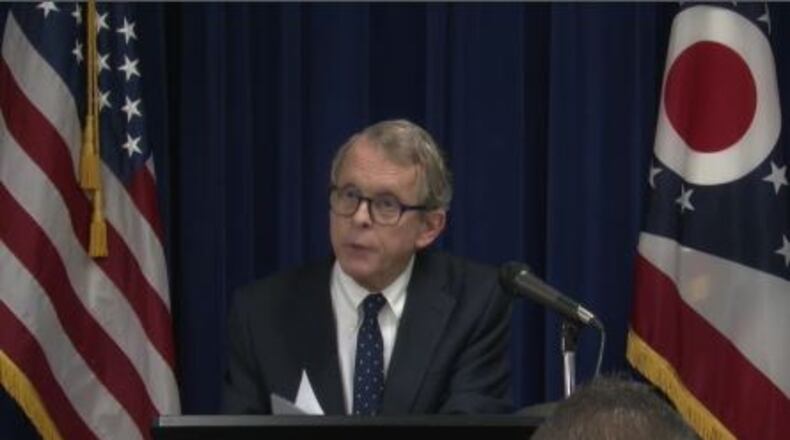RELATED: Dayton Children’s Hospital treating two children a week for opiate overdoses
Officials in Montgomery and Clark counties acknowledged the strain as drug problems continue to surge through their communities.
“We are finding at this point in time that just over 40 percent of our initial removals are related to substance abuse issues,” said Montgomery County Children Services Assistant Director Jewell Good.
Agencies like Good’s are getting pinched on both ends. Montgomery County has had a 25 percent reduction in the number of licensed foster homes over the past five years, from 303 to 229, Good said.
RELATED: Drug crisis traumatizing children in Clark County, state
With the shortage of foster care homes locally and across the state, agencies are having to place children further from their homes, and some are even placed out of state.
In Clark County, 60 percent of the 124 children currently in care are placed by private companies and they are more likely to be placed outside of the county, said Pamela Meermans, deputy director for Family and Children Services.
“A big issue for us is the continual need to recruit and license new foster parents,” Meermans said.
The 40 licensed homes in Clark County is down from about 75 a decade ago, Meermans said.
RELATED: County surpasses 2016 fatal overdose total before June
‘It’s an emergency’
As of this month, Ohio has about 15,000 children in the custody of children’s services agencies. That’s up 3,000 from seven years ago, when the opioid epidemic began, DeWine said.
There are currently 7,200 licensed foster families.
Children are also staying in the foster care system longer, officials say.
About 19 percent of children are staying in foster care longer because of the amount of time it takes for parents to successfully recover, according to the Public Children’s Services Association of Ohio.
“This is a tragedy and it’s an emergency,” said DeWine, who called on anyone who has ever thought about fostering to consider getting licensed.
Those wishing to become a licensed foster parent must pass both an FBI and Ohio Bureau of Criminal Investigation background check. DeWine Thursday said his office will expedite BCI checks for those who request them.
He also announced a $1 million grant to be established out of the federal Victim’s of Crime Act fund, which his office administers. He said the money will be used for a pilot program in about 10 counties to help promote more kinship care placements where children are placed with a relative, neighbor or family friend.
Meermans said all Ohio counties prefer to make kinship placements first, before resorting to a foster home.
RELATED: What Ohio governor candidates plan to do about heroin crisis
Political overtones
Thursday’s press conference had political overtones: DeWine, a Republican who is running for governor, has already signaled he plans to make the opioid crisis a central piece in his campaign.
RELATED: Who has the most money in Ohio’s governor race right now?
Both DeWine and Dayton Mayor Nan Whaley, who is seeking the Democratic nomination for governor, have filed lawsuits against pharmaceutical companies, alleging they are responsible for getting people hooked. Other candidates, too, have addressed the crisis as part of their campaigns.
There are four Democrats and four Republicans who have announced their intentions to run for governor.
DeWine acknowledged the foster care home shortage has nothing to do with his job as attorney general but said he wanted to use his office’s bully pulpit to draw attention to the crisis.
HOW TO GET HELP
The Ohio Attorney General’s Office has launched a website to help recruit foster families at www.ohioattorneygeneral.gov/FosterFamilies.
Those requesting an expedited background check from the Bureau of Criminal Investigation should email fostercheck@ohioattorneygeneral.gov.
About the Author
